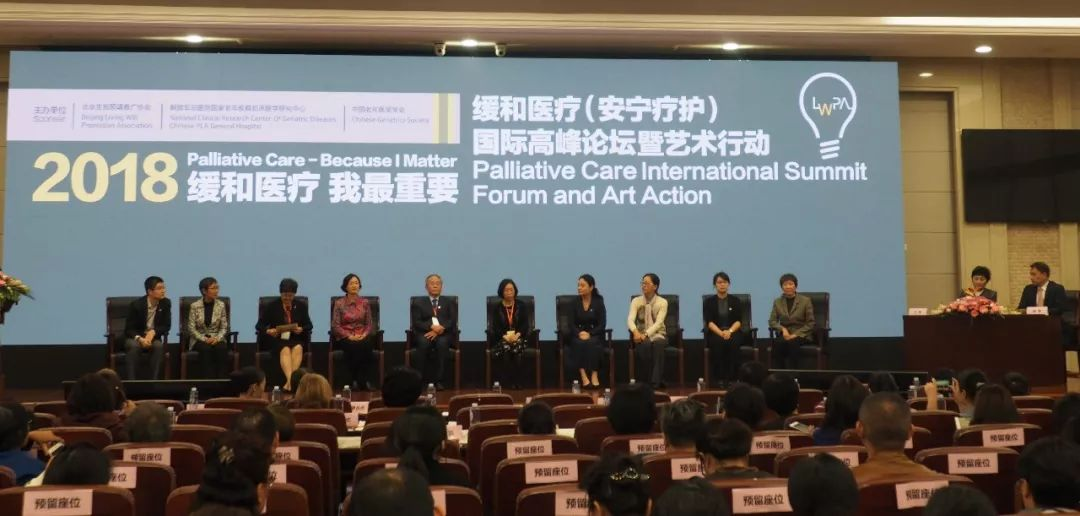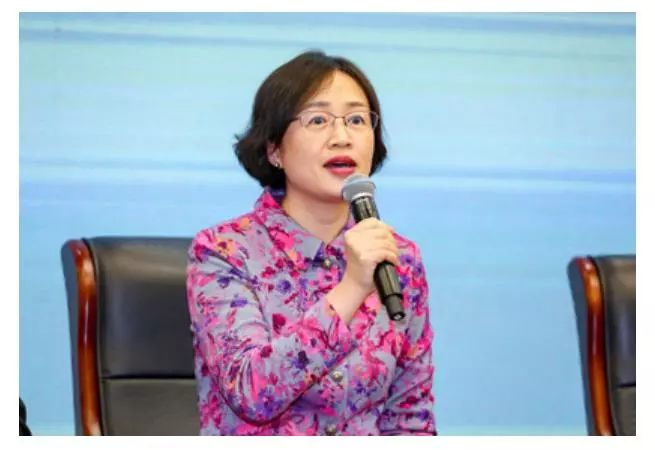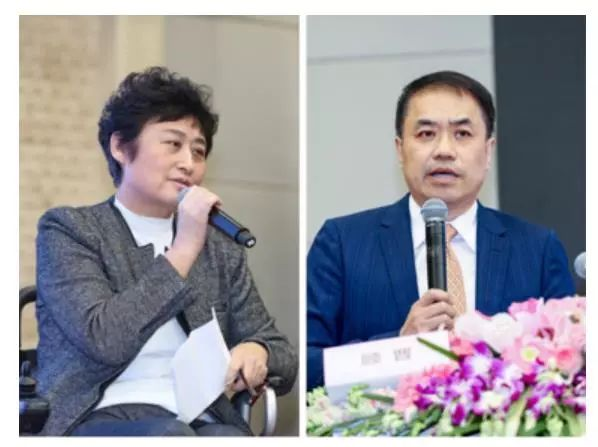Review of "2018 International Summit Forum on Palliative Care and Art Action"
On October 13, 2018, the Beijing Living Will Promotion Association, the National Geriatric Clinical Medical Research Center of the PLA General Hospital, and the Chinese Geriatric Society jointly held the ";2018 Palliative Care (Hospice) International Summit Forum and Art Action";, which is the third consecutive year that the commemoration of "World Hospice and Palliative Care Day"; has been held in China. The National Committee of the Chinese People's Political Consultative Conference, the Health and Health Commission and other leaders delivered speeches at the scene.
The theme of this World Day of Hospice and Palliative Care is "Palliative Care-Because I Matter!" Translated into Chinese as "Palliative care, I am the most important", the theme reminds everyone to listen to and pay attention to the demands of patients, "I" means "patients".
After the opening ceremony, experts and scholars from developed countries and regions of palliative care made wonderful academic reports. These reports were carefully selected topics and carefully prepared, which could be called a feast of palliative care.

Top speakers from left to right: Wai Kit David, Hui, Zhao Keshi, Deforia Lorraine Lane, Tang Li-Li Bottom speakers from left to right: Li Xiaomei, Jennifer Philip, Jan Noble, Tai-Chung, Liu Fang
The half-time meeting in the morning was chaired by Professor Li Xiaomei of PLA General Hospital and Professor Yu Shiying of Tongji Hospital Affiliated to Huazhong University of Science and Technology. The first speaker, Professor Wai Kit David Hui, from the Department of Palliative Care and Integrative Oncology, MD Anderson Cancer Centre, USA, has deep expertise in cancer medicine, palliative care, rehabilitation and integrative medicine. His presentation deals with how palliative care can be better integrated with oncology. Due to tumor complications, anti-tumor therapy, psychosocial stress and other reasons, cancer patients often have a variety of painful symptoms, which need palliative care to deal with. Professor Hui shared research evidence that palliative care can alleviate symptoms, improve quality of life, and even improve survival for cancer patients, especially in outpatients. While there is no standard model for the integration of palliative care and oncology, "the benefits are greatest with multidisciplinary teams and early intervention." In the future, the search for the best integration model requires simultaneous efforts in policy, research, education, and clinical practice.
In the early stage, palliative care focused on alleviating the pain of patients with advanced tumors, but with the development of the medical system, all patients with chronic end-stage diseases have become the objects of palliative care. Professor Jennifer Philip, from the University of Melbourne, St Vincent's Hospital and Comprehensive Cancer Centre Victoria, Australia, presented her report on Palliative Care for non-Cancer Patients: Opportunities and Challenges. Professor Philip said: "The prognosis for advanced non-malignant disease is as limited as for malignant tumours, some symptoms are more painful than those of the tumour, and the prognosis is often over-optimistic. Due to lagging concepts, evaluation and inclusion criteria, inconsistent intervention timing, limited human resources and other reasons, the proportion and time of non-malignant tumor patients receiving palliative care are much lower than that of malignant tumor patients. How to overcome these obstacles? Professor Philip recommends "incorporating palliative care into non-cancer patient care to establish the best model of integration". Professor Philip also shared one of the team's studies: Providing integrated respiratory services to patients with dyspnea in the outpatient clinic for advanced non-malignant disease can effectively control dyspnea and improve survival. People of insight in China have also begun to pay attention to palliative care for non-tumor patients, but it is still in the learning and exploratory stage. I believe that with the development of palliative care, more patients with terminal diseases will be benefited.
The third speaker in the morning is Professor Zhao Keshi of the School of Medicine of Chenggong University, Taiwan. Professor Zhao Keshi studied under Sicily, the founder of modern palliative care. Saunders is the first pioneer in palliative care in Taiwan. Through the efforts of medical scientists represented by Professor Zhao Keshi, the level of palliative care in Taiwan has now ranked first in Asia and sixth in the world. Professor Zhao's report "The Four Ways of Hospice care - Service, education, policy and law, Localization research" shared the experience of Taiwan's palliative care construction. For "service", Zhao emphasized that palliative care only directly serves patients/families, so that patients have a good life, a good death, a good experience, and naturally will be supported and promoted by the public. In terms of "policies and laws", Taiwan has a series of regulations to ensure the implementation of palliative care, such as the Regulations on Palliative Care and the Law on Patient Autonomy. "Since only Tier III hospitals can educate the next generation of medical students, Taiwan's Tier III hospitals have included provisions to establish hospice services in their establishment guidelines." At the end of Professor Zhao Keshi's report, a video was played to the participants. Under the guidance of Professor Zhao Keshi, a four-year-old child's farewell and confession to his dying father made many viewers weep. However, the father's death did not leave a shadow in the child's heart, because palliative care made the child "although he lost his father physically, he did not lose his love for his father." As the two sides of the mainland share the same ethnic origin and cultural background, Professor Zhao's report shows that many of Taiwan's experience in palliative care is worth learning from the Chinese mainland.
Professor Tang Lili of Peking University Cancer Hospital is dedicated to promoting the development of psychosocial oncology in China. Her report, Exploring the Development Model of Oncology Psychological Support Therapy in China, reviewed the development process, significance, content and working model of psychosocial oncology. Psychosocial oncology needs to be involved throughout palliative care, which should not only focus on pain and symptom management, but also extend to spiritual, psychosocial, spiritual and existential dimensions. "Early palliative care is mainly psycho-social oncology, and late palliative care is psycho-social oncology plus symptom control," says Professor Tang, citing Canadian psychologist Gary Rodin. China's psycho-social oncology started in the 1990s, but its development has been stagnant for various reasons. In the past five years, under the leadership of Professor Tang Lili, tumor psychology has entered a period of rapid development. A number of professional committees have been set up across the country, the Guidelines for Tumor Psychotherapy have been written, and more and more studies have been published in this field in China. In spite of this, there is still a shortage of oncological psychology practitioners in China, resulting in insufficient psychological intervention in palliative care, which is one of the main reasons for the backward level of palliative care in China. Professor Tang concluded with the prospect that "China will establish its own model of psychosocial oncology services, and we have started to build it in cooperation with MD Anderson Cancer Center, looking forward to your participation."
After a short break and lunch, the academic conference entered the second half, presided over by Professor Liu Duanqi from the Army General Hospital and Professor Deng Xiaohong, Counselor of The State Council.
Professor Jan Nobel is from St Christopher's Nursing Home in London, the birthplace of palliative care. In her report "Caring for Dying Elderly Patients - Because it Matters", she said that the world has entered an aging society, and the establishment of age-coordinated palliative care will be a social demand in the future. "People are living longer and our health and social care services must be in tune with age." The important principles of establishing age-coordinated palliative care include: maintaining the consistency of elderly patients, maintaining the personality of elderly patients, constantly adapting and balancing the situation of loss of function, and establishing social networks/communities for elderly patients to survive. Despite the current obstacles to this work, it will undoubtedly become more important in our future society, and the experience of St. Christopher is worth learning from.
Professor Deforia Lorraine Lane, from the Seidman Cancer Center at University Hospitals in Cleveland, USA, is a music therapist. She shared the role of music therapy in palliative care. People suitable for music therapy include autism, developmental retardation, palliative care and the elderly. Professor Lane shared many videos of music therapy with everyone, and saw the amazing positive changes that occurred in difficult patients before and after music therapy, which made people eager to try. Professor Lane also shared a randomized controlled study that showed that music therapy significantly reduced pain. In addition, studies have shown that music therapy can help with speech recovery, improve physical and motor recovery, reduce anxiety/depression/withdrawal, improve respiratory function, and more. "Live music is more effective than recorded music," Lane said. Music therapy also has the advantage that other treatments cannot match, it is a "non-drug, safe treatment option".
Professor Li Xiaomei, Department of Medical Oncology, South Building, PLA General Hospital, shared her thoughts on the clinical practice of palliative care, "The primary problem facing the entire management of palliative care is how to inform the bad news. Delivering bad news also faces ethical and legal conflicts in China. From an ethical point of view, patients should be informed of bad news, but the Medical Practitioners Law clearly states that adverse consequences should be avoided, which increases the consideration and difficulty of telling bad news." Professor Li Xiaomei also analyzed other ethical principles involved in palliative care, stressing that "the principle of autonomy is preconditioned and should be based on full communication, patient knowledge, and the ability to weigh and choose." Avoiding excessive treatment is a topic that is talked about more, but with the progress in the field of tumor therapy, attention should be paid to avoiding insufficient treatment, and the progress of many therapeutic drugs has greatly improved the survival of patients, and should be kept abreast with The Times. "Both overtreatment and undertreatment harm patients and should be avoided." Li Xiaomei also called for the establishment of multidisciplinary teams to carry out high-quality palliative care, "We are now one for all, but we need all for one."
Professor Lam Tai-chung of the Li Ka-shing Faculty of Medicine of the University of Hong Kong shared the experience of palliative care for cancer patients in Hong Kong. The level of palliative care in Hong Kong ranks among the top in Asia. Statistics show that there are 150 oncologists in Hong Kong, 44 of whom have obtained the palliative care qualification certificate. Public health expenses cover 80% of the costs of palliative care, and the rest comes from public welfare organizations. There are seven cancer centres in Hong Kong, with palliative care coverage exceeding 60% and duration of palliative care meeting international standards. Palliative care is beneficial to reduce the proportion of cardiopulmonary resuscitation and ICU treatment, and reduce the invasive rescue and anti-tumor therapy in the terminal stage. Compared with the data of Hong Kong, we can see the gap between the mainland and Hong Kong in the field of palliative care, but we believe that the development of palliative care in the mainland can be promoted through exchanges.
Social workers are an important part of the palliative care team. Liu Fang, director of the social work Department of the First Hospital of Jilin University, reported the Exploration and Prospect of social work in hospice care. With the deepening of aging in China, the high cancer mortality rate, and the increasing need for "whole person" care, hospice social work has developed rapidly with the support of the government and social funds. Social work is an important part of palliative care, and Director Liu Fang shared the "one, two, three and four models" of social work. Social workers and volunteers are social work participants who work through individual care, group activities, and community activities, including in palliative care homes, communities, hospitals, and institutions. Social workers use the principle of "helping others and helping themselves" to meet the patient's physical, mental, social and spiritual requirements. Liu Fang's final hope: I hope that the development of hospice social work can make us "come crying and go with a smile..." .

From left to right: Huang Haili, Qin Yuan, Deng Xiaohong, Mo Lixia, Liu Duanqi, Yu Shiying, Li Ling, Ning Xiaohong, Liu Fang, Wu Xiaoming

Mo Lixia, deputy director of the Department of Aging Health of the NHC, speaks at the roundtable discussion

Ms. Ying Wang, Director general of Beijing Living Will Promotion Association, and Professor Gu Jin of Beijing Shougang Hospital presided over the meeting
After the academic report, the last session of the conference: the discussion of hospice team building and promotion strategies. The session was hosted by Ms. Ying Wang, Director General of Beijing Living Will Promotion Association, and Professor Gu Jin from Beijing Shougang Hospital. Ms. Mo Lixia, Deputy Director of the Department of Aging Health of the National Health and Health Commission, Ms. Deng Xiaohong, Counselor of The State Council, and experts and scholars in the field of palliative care participated in the discussion. We discussed the current situation, progress, confusion, hope and significance of China's palliative care from different angles, "I hope that living wills can be gradually promoted to clinical practice in the future, and every doctor can ask whether you have signed a living will when communicating with terminally ill patients." Deng Xiaohong expressed her desire to Ms. Mo Lixia. Mo Lixia expressed her recognition and support for palliative care from the perspective of managers, "This is a cause, each of us has to face death, we will be more active to promote its development." At the end of the discussion, Professor Gu Jin finally shared with you his "first operation for the dignity of patients in more than 30 years of practice." A 33-year-old male patient with advanced colon cancer, due to tumor invasion of the abdominal wall, fear of strong odor affect others, unable to live a normal life brought huge physical and mental pain, this is a restricted area of surgery, but Professor Gu Jin after repeated weighing for the patient to carry out the operation, the final operation was successful, the patient gained dignity "and returned to the crowd". Everyone paid their respects to Professor Gu Jin with warm applause.
The meeting came to a successful conclusion. The venue was full to the end. On the one hand, it shows that the popularity of palliative care in China has increased, and on the other hand, it also shows that the content of the conference has received attention from everyone. Look forward to seeing you next year on Hospice and Palliative Care Day!
(Some photos are from the Internet)
Prev
In 2025, the first "dual-teacher Class" for medical and elderly care integration and palliative care was launched - systematically cultivating talents in elderly health services to empower the high-quality development of the elderly health cause
Next
The First Training Course on Standardized Comprehensive Knowledge of the Chinese Geriatric Society was held in Beijing.

